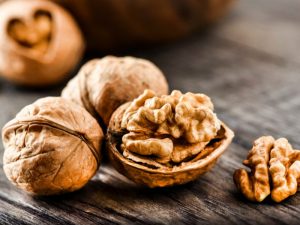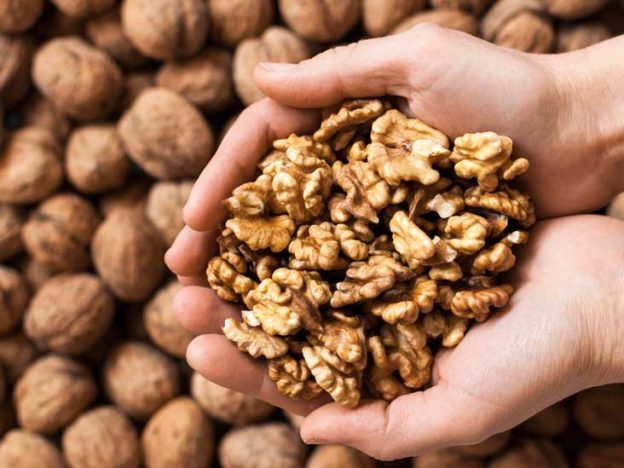Scientists and researchers operating out of the Loma Linda University in the United States have come across what could be a major breakthrough in how we understand cholesterol (particularly LDL-cholesterol), its impact on the human body, and how we might more effectively fight back against the “bad cholesterol” that can wreak havoc on our health and well-being.

Publishing new research in the Nutrition Journal, the lead researcher (Ella Haddad) has put forward a new claim that walnuts are capable of protecting human beings against serious cardiovascular disease brought on by “bad cholesterol” – LDL-cholesterol.
Noticing a trend in numerous research papers that individuals that ate lots of nuts were found to have lived longer than those that did not, the research team decided to dive deeper into the science behind this postulation.
A commonly held belief amongst professional nutritionists today is that it is nuts like walnuts that are helping individuals to lead these longer lives, these healthier lives, and these more active lives compared to those that do not have nuts as a part of their daily diet.
The researchers behind this study wanted to determine whether or not this belief was correct with and why – as well as how – nuts were able to produce this kind of life extending property.
The study sample size was admittedly quite small compared to most clinical trials, with just 16 individual adults participating. Ideally the sample size will be increased as more research is conducted into this area in the future, but even still the results that the researchers were able to uncover were quite staggering just the same.
The study began with each individual presented with a breakfast that consisted of just 90 g of walnuts on a single occasion. Walnuts were chosen because of their specific biochemical makeup and the anecdotal evidence that they were some of the most important nuts to eat if an individual wanted to lead a long, happy, and healthy lifestyle.
On another, totally separate occasion this same group of individuals was given a breakfast that included oils, white bread, and egg proteins – all of which have a scientifically proven impact on LDL-cholesterol levels in the human body.
The research team found that after the test participants consumed what was called the CONTROL breakfast – the eggs, the white bread, and the oil – that the amount of oxidized LDL cholesterol that existed in their blood climbed almost immediately. The increase in bad cholesterol was anything but insignificant.
The team found that after the test participants consumed what was designated the WALNUTS breakfast that not only did their LDL cholesterol levels remain the same, but the group also found extra vitamin E analogs in the blood – particularly gamma tocopherol.
Gamma tocopherol has been called a “protective vitamin” in the past by medical researchers and scientists, with walnuts in particular having an incredibly high concentration of this biochemical.
On top of that, walnuts also contain substances called catechins.
When combined with gamma tocopherol, catechins are able to aggressively counteract free radicals. The two substances become almost superpowered antioxidant agents, fighting back against all kinds of aggressive molecules throughout the body that would do you harm – while at the same time protecting against LDL-cholesterol oxidation.
Researchers were also surprised to learn that there was a higher count of the antioxidant ORAC effect in the blood after individuals had eaten the WALNUT breakfast. There was also quite a bit less malondialdehyde in the bloodstream, another obvious sign that free radical activity had been curbed significantly.
As highlighted above, this initial test was quite small in comparison to other clinical studies and more research is obviously necessary to fully understand how walnuts (and other nuts) seem to have such a game changing impact on bad cholesterol levels that cut so many lives shorter than they should have been.
Source: https://www.ncbi.nlm.nih.gov/pubmed/24410903







